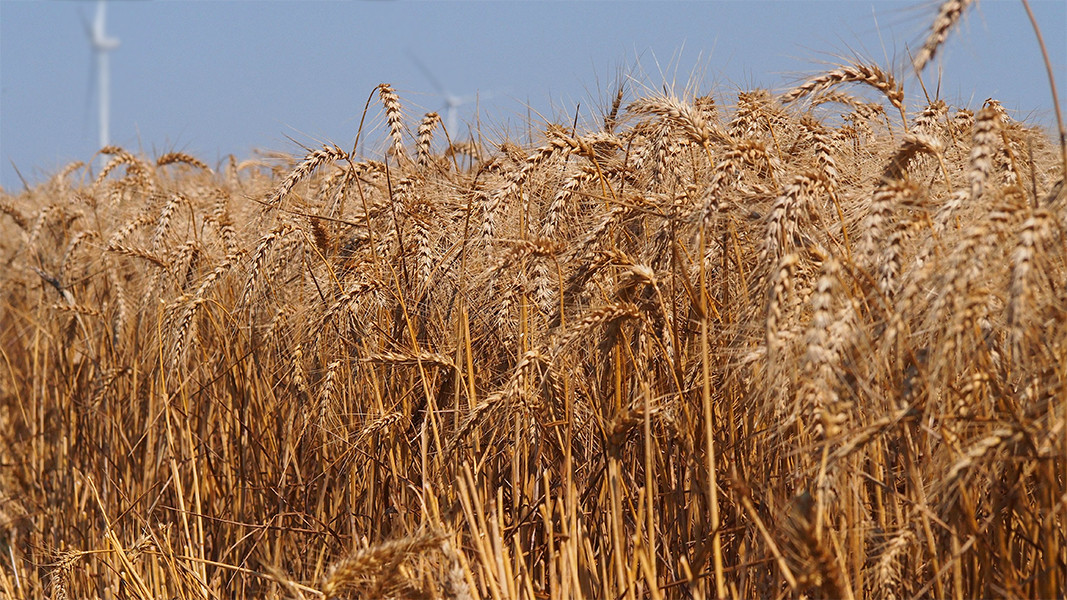A good wheat harvest – around 7 million tonnes – is what Bulgarian wheat producers are expecting, the standard annual wheat yield being around 5 million tonnes, outgoing Minister of Agriculture Ivan Ivanov says. Though the outlook is favourable, Bulgarian grain producers are worried by the rising costs and the unanswered questions regarding the sale of their production in light of the duty free import of grain from Ukraine, whose cost price is much lower. At a meeting of grain producers in Bozduganovo village near Radnevo in June, Minister Ivanov promised that the Ministry of Agriculture would protect their interests, and expressed the hope that Bulgarian farmers will be able to market their produce at a price that will allow them to cover the higher costs they have to pay.

In an interview with the BNR, Kostadin Kostadinov, chairman of the National Grain Producers Association talks about the problems the sector faces:
“The wheat we produced this year is at a high cost price. The price of fertilizers is up 3-4-5 times compared to last year, the preparations, the seeds, consumables, fuels, the salaries of our workers are all soaring.”

Another problem is that the warehouses of Bulgarian traders are already filled with Ukrainian sunflower, whereas the Bulgarian sunflower will be ready in about a week’s time. The same holds good of maize and wheat. Kostadin Kostadinov says that the new market conditions are damaging to Bulgarian farmers:
“We have all kinds of commitments as members of the EU in order to produce any commodity in compliance with European requirements regarding pesticides etc., so, ultimately we turn out an expensive product that meets European requirements. But we are a country that is close to the conflict, and in times such as these speculation is usually rife. Sunflower is being imported that we don’t know how it was grown, whether it doesn’t come from a polluted area, and we know there are such areas in Ukraine. The state should perform its duties here, in the same way that we fulfil all our commitments to it by paying taxes and meeting European requirements, it too should fulfil its commitments. Any oversight or any willful failure to act is damaging to Bulgarian producers.”

Radostina Zhekova, chairperson of the Dobrudzha Union of Grain Producers agrees. She says that the new situation is going to lead to shocks in the sector and bankruptcies of smaller farms. “The EU may have decided to rescue agriculture in Ukraine and Moldova, but not European agriculture,” Radostina Zhekova said for the BNR.
Agriculture Minister Ivan Ivanov is not denying control of the imports from Ukraine is lower; answering a question by an MP in parliament, he stated that the production from Ukraine is only monitored for moisture, protein and gluten.

“The European Commission has made a decision that all quantities leaving Ukraine shall not be subject to customs duties, or to the respective phytosanitary control,” Minister Ivanov explained to the parliamentary agriculture committee, in answer to a member of parliament who asked why large quantities of wheat and maize of unknown quality were being imported to Bulgaria from Ukraine. “Nevertheless I have assumed a commitment and we shall carry out tests at storage facilities, where there are such quantities, and we shall endeavor to avoid being sanctioned as a country for conducting tests, as they are exempt from phytosanitary control, to see whether there are substances which are outside the norms, in accordance with EU requirements,” Ivan Ivanov added.

Whether tests will be carried out, what will follow and how Bulgarian producers can be protected is difficult to predict, especially in such volatile times and with a government that has handed in its resignation.
Compiled by Miglena Ivanova
Photos: EPA/BGNES, BGNES, agri.bgWe are moving towards the option of not having a quickly adopted budget for 2025, Lachezar Bogdanov, chief economist from the Institute for Market Economics, told BNR. In presenting the institute's alternative state budget, the..
Bulgaria and India will intensify their cooperation in various sectors of mutual interest. This was discussed at a meeting of the Bulgarian Minister of Economy Petko Nikolov with Ambassador of India to Bulgaria H.E. Sanjay Rana. The two focused..
On October 31, 2024, 10 business leaders in Bulgaria founded the first Bulgarian-Czech Chamber of Commerce in the country. At the Embassy of the Czech Republic in Sofia, in the presence of Martin Dvořák, Minister of European Affairs of the Czech..

+359 2 9336 661
